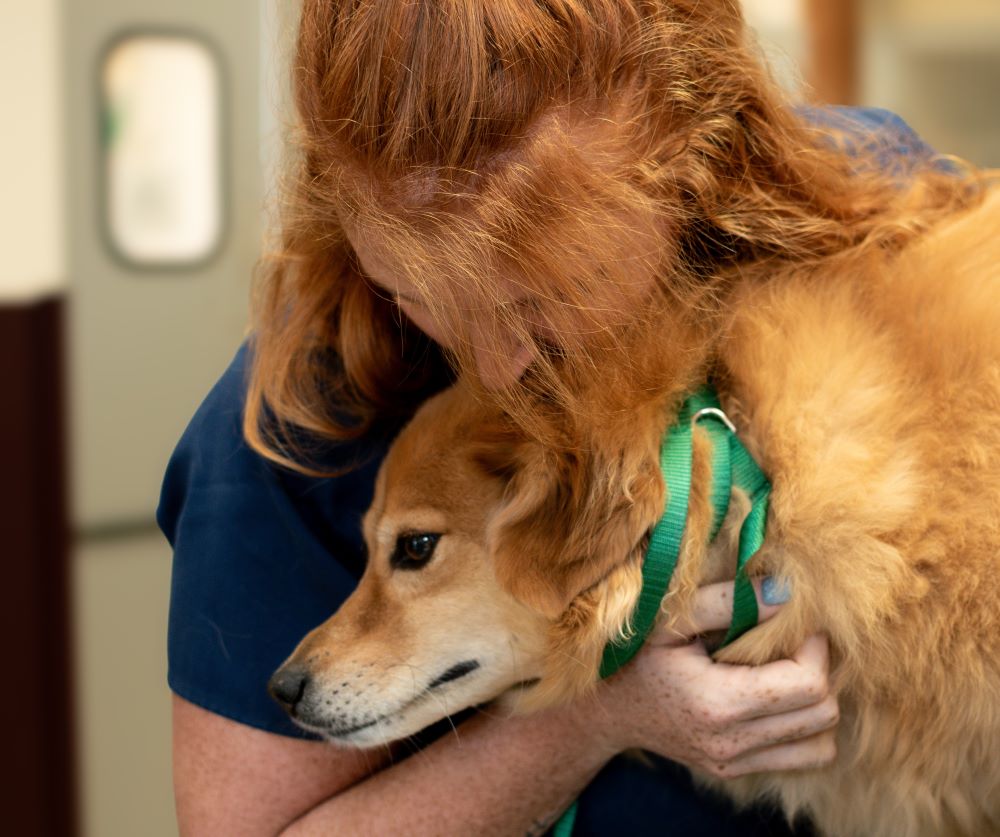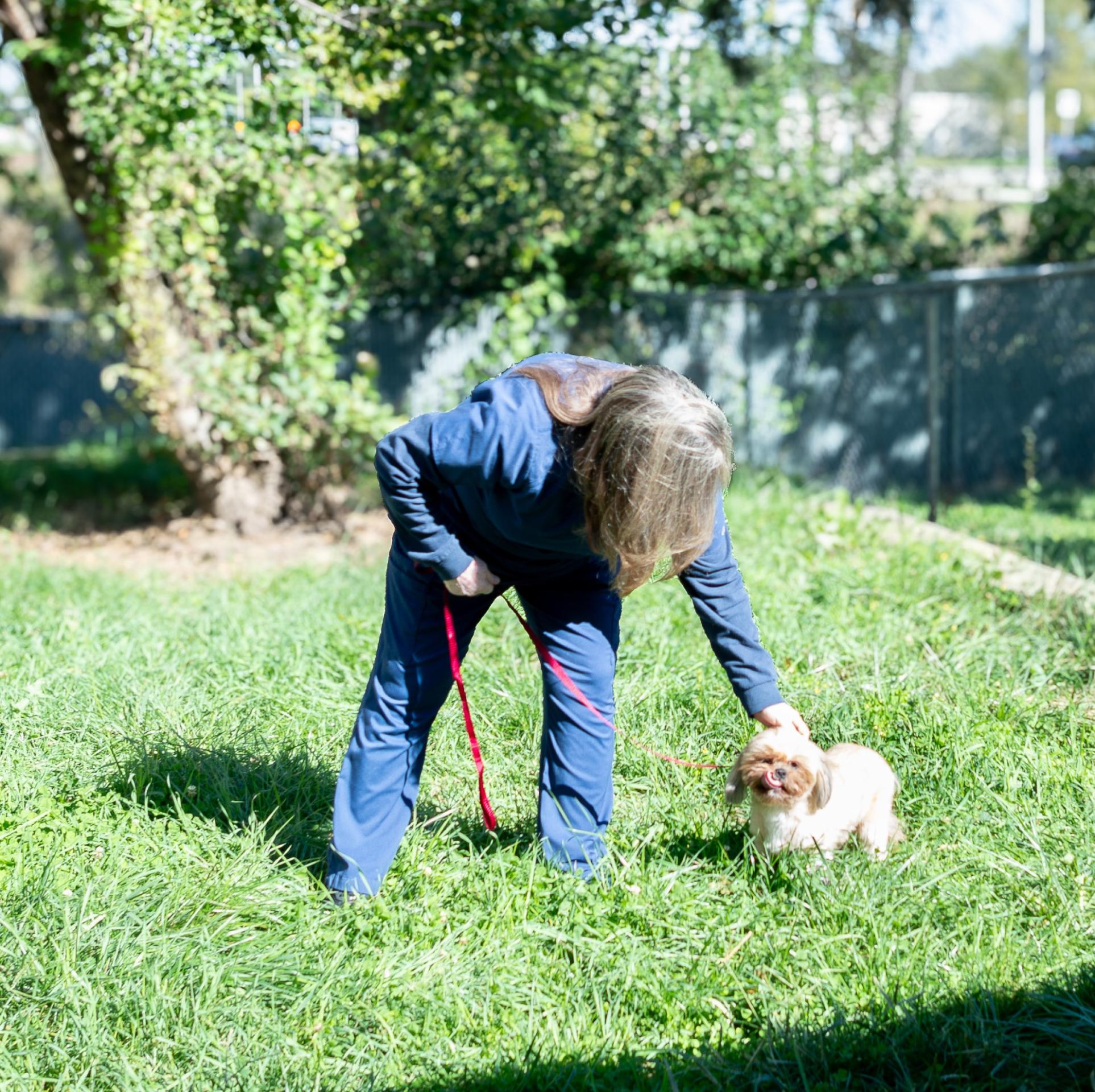 At Orchard Road Animal Hospital, we understand that your canine companion is not just a pet, but also a beloved, cherished family member. The mutual bond of love and loyalty between you can make a diagnosis of any form of dog cancer very difficult to hear. Our veterinarians and support staff are empathetic, compassionate and trained to focus on both the emotional and medical aspects of dog cancer.
At Orchard Road Animal Hospital, we understand that your canine companion is not just a pet, but also a beloved, cherished family member. The mutual bond of love and loyalty between you can make a diagnosis of any form of dog cancer very difficult to hear. Our veterinarians and support staff are empathetic, compassionate and trained to focus on both the emotional and medical aspects of dog cancer.
We are here to guide you both through the diagnosis and treatment process. This includes choosing the best options for effectively, humanely and successfully dealing with canine cancer.
Unlike many other species of animals, dogs are susceptible to the same types of cancer as humans. Cancer is caused by the uncontrolled growth of cells in the body. These cells can originate in any of the body's tissues. If not found and arrested in time, cancer can expand and connect with the circulatory or lymph systems, and it also can spread and infect other tissues in the body. Canine cancer is the leading cause of death for dogs 10 years of age and older. However, half of all cancer in dogs is treatable if it is arrested in its early stages.
Symptoms And Signs Of Cancer In Dogs
Some signs of cancer in dogs are easy to spot and others are not. Signs of cancer in dogs may vary greatly depending upon a number of factors. However, the following list identifies some of the most common signs of cancer in dogs:
- Lumps and bumps underneath a dog's skin
- Abnormal odors emanating from the mouth, ears or any other part of the body
- Abnormal discharge from the eyes, mouth, ears or rectum
- Abdominal swelling
- Non-healing wounds or sores
- Sudden and irreversible weight loss
- Change in appetite
- Coughing or difficulty breathing
- Lethargy or depression
- Changes in bathroom habits
- Evidence of pain
Should you witness any signs of cancer in your dog, we strongly recommend making a veterinary appointment immediately.
What You Need To Know About Tumors In Dogs
Tumors in dogs usually appear as fleshy but solid lumps of tissue underneath a dog's skin and fur. Not all tumors will be outwardly evident. Sometimes you can see evidence of tumors and sometimes they are deep within the body of the dog. However, early detection and treatment are key to preserving your dog's health and quality of life. Therefore, it is important to periodically inspect your canine companion for any abnormal lumps and keep a semi-annual veterinary appointment schedule.
Owners most commonly find a tumor on their dog while petting or bathing. If you are running your hand over any part of your dog's body and feel a lump, call to make an appointment with your veterinarian. Most likely, the veterinarian will want to do a needle aspirate to get cells from the tumor to get a diagnosis on the type of tumor. The diagnosis is helpful in determining what if any type of surgery and or follow up cancer care may be necessary. Some tumors in dogs cannot be visualized but can be palpated (felt with touch) by your veterinarian during the exam. For instance, an enlarged spleen may be palpable to your veterinarian but not visible to the owner. You can reference the list of canine cancer symptoms above to get a better understanding of what symptoms to be on the lookout for.
Diagnosing Canine Cancer
Only a veterinarian can accurately diagnose canine cancer. This is why it is extremely important to schedule periodic wellness exams for your canine companion. During these preventive exams, your veterinarian can check your dog for signs of canine cancer. Treating canine cancer before it advances is key to a successful recovery.
Treatment Options For Dogs With Cancer
 Several factors influence cancer treatment decisions for dogs with cancer, including:
Several factors influence cancer treatment decisions for dogs with cancer, including:
- Age of the dog
- The general health of the dog
- Tumor type
- The biological behavior of the tumor
- The Stage of the Cancer
The patient's overall health status plays a major role in therapy choices for dogs with cancer. This includes evaluating the patient for his or her ability to tolerate cancer treatment. Life expectancy should be taken into consideration as well; for a slow-growing tumor in an older dog, for example, treatment drawbacks may outweigh potential benefits.
Treatments for dogs with cancer are similar to human therapies, which can include:
- Chemotherapy
- Surgery
- Radiation therapy
- Holistic or herbal therapy
There is a lack of consensus as to whether you must choose only one course of treatment, or if multiple treatment options can be combined effectively. Sometimes combining methods works well for dogs with cancer, but that may not always be the case as some treatments may interfere with each other and potentially cause unintended harm. These are important issues to address with the veterinarian at your next appointment.
Schedule An Appointment For Your Dog Today
If you suspect dog cancer - whether you've found a bump or witnessed behavioral symptoms - please contact us immediately to schedule an appointment. Our veterinarians and support staff will provide you and your canine companion with compassionate, comprehensive dog cancer care and support services.
Although dog cancer can be overwhelming, you don't have to go through it alone. We are here to help ease your dog's pain and suffering and eliminate the cancer through the best dog veterinary care available.


